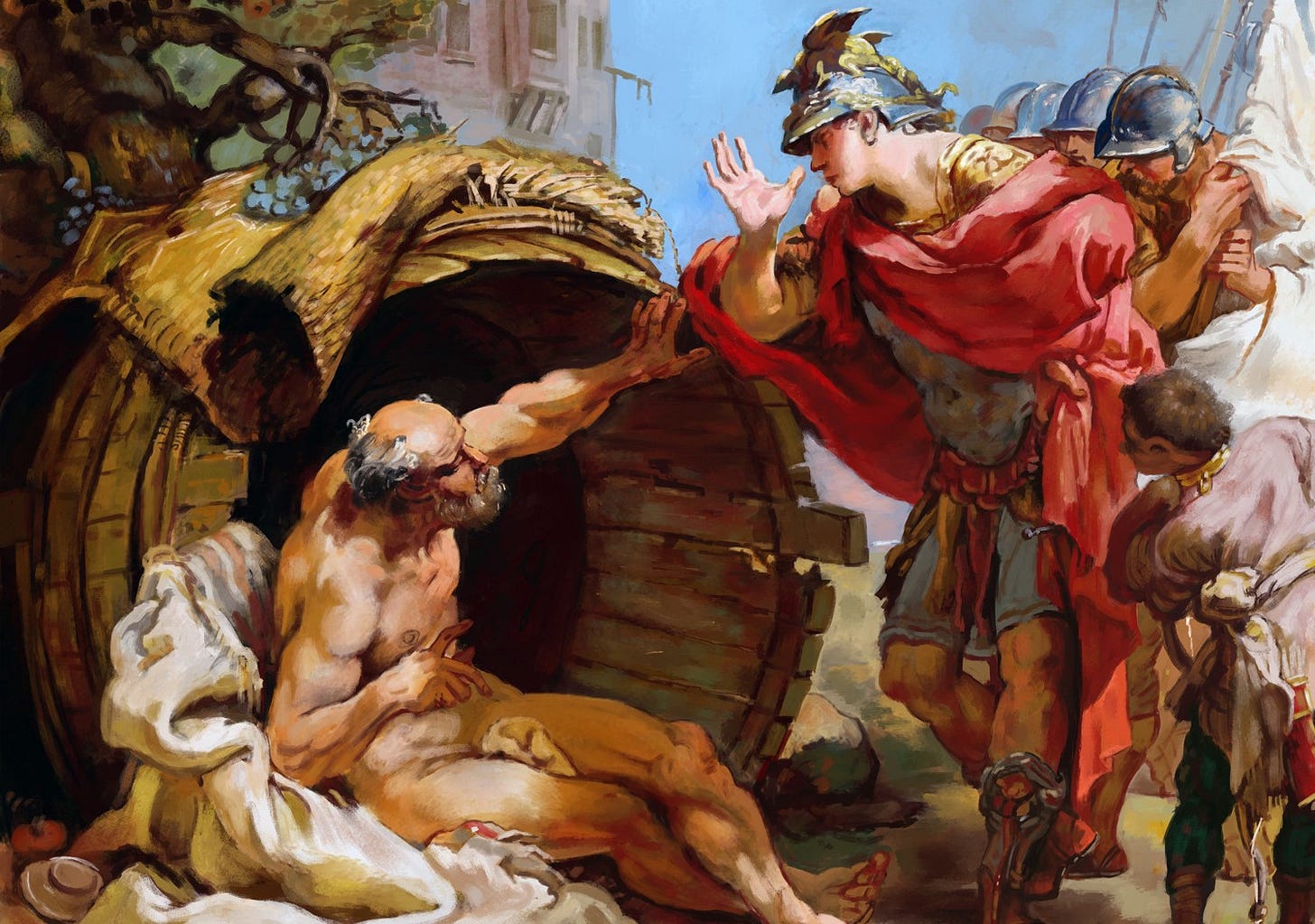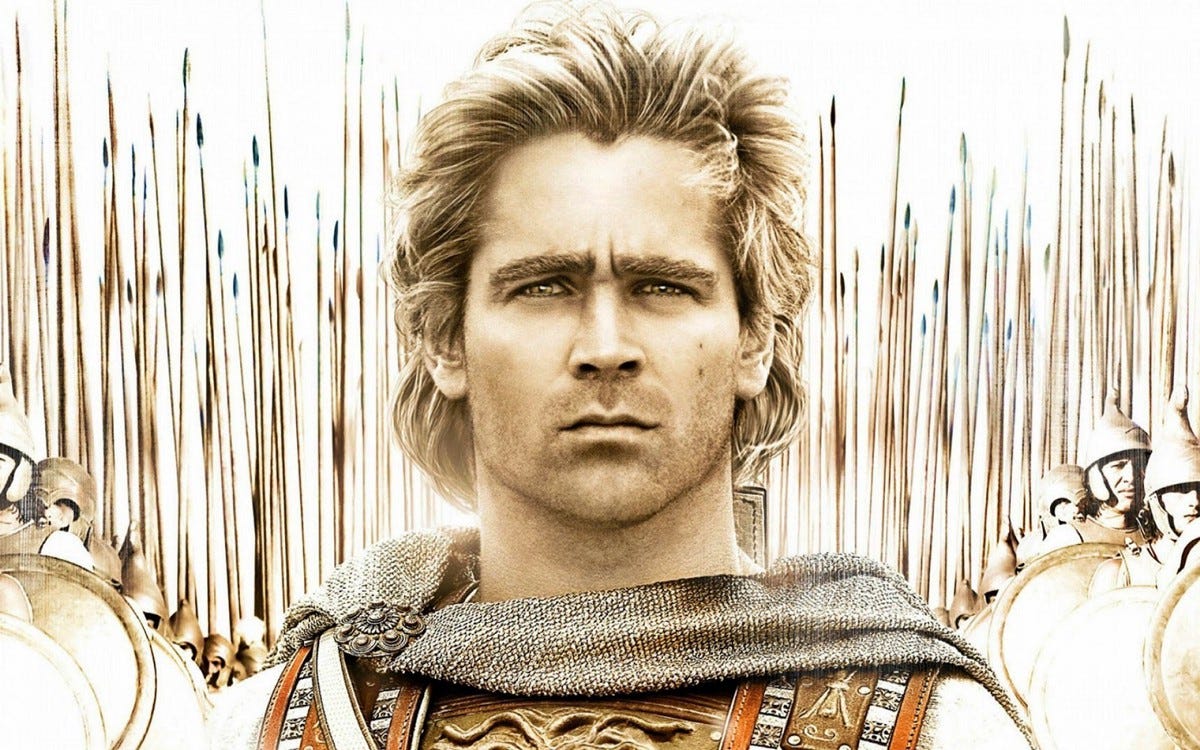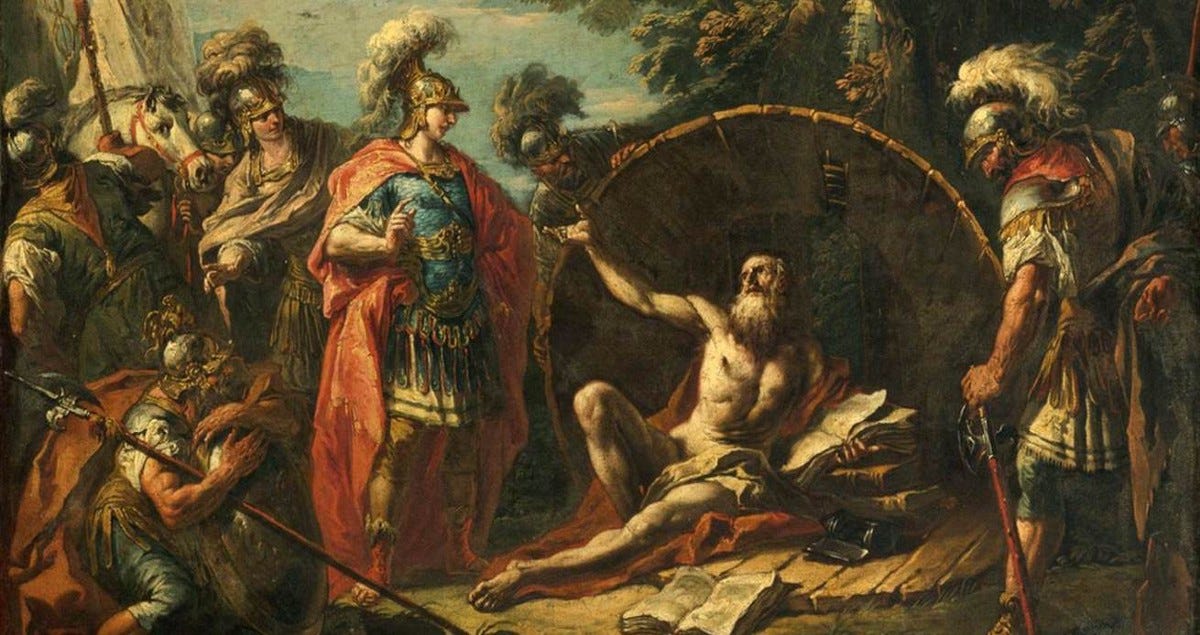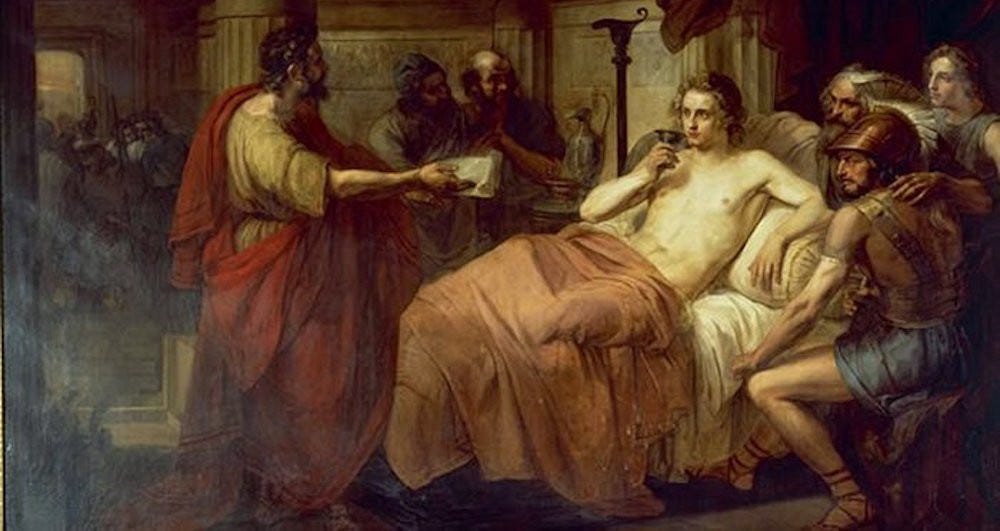The Philosopher and The King: Emotional Freedom vs. Financial Freedom
Diogenes was lying in the grass enjoying the warmth of the sun when he heard a crowd moving toward him.
Trumpets blared, announcing the arrival of the king.
Diogenes looked up and squinted at the procession coming toward him. In the distance he could see the king leap from his horse and start running over.
The sun gave way to the king.
Silhouetted by the sun, Alexander the Great represented the epitome of power.
He ruled the largest empire in the world, stretching from the Ionian Sea to the Himalayas.
Smiling down, Alexander introduced himself: “I am Alexander, the great king.” Diogenes replied: “I am Diogenes, the dog.”
The great king asked, “I have heard many stories of your wisdom and I’ve come to ask if there is anything I can do for you. Please, feel free to ask me for anything.”
Diogenes looked up, thought for one moment, and said, “Yes, yes there is!”
“Anything,” the king answered.
“Stand a little to the side, you’re blocking my sun.”
Alexander’s guards gasped, but the king was so surprised by the answer that he could only laugh. After that, he admired Diogenes even more. He stepped aside, and Diogenes sincerely thanked him.
“It’s a wise man who keeps his word,” Diogenes said, and as Alexander and his men turned to ride home, the king smiled. He turned to his servant and said, “I can tell you this, if I were not Alexander, I would like to be Diogenes.”
I would rather excel in knowledge of the highest secrets of philosophy than in arms. — Alexander the Great
Power comes in many forms. Who was more powerful? Diogenes or Alexander the Great?
Diogenes needed the sun to be happy; Alexander the Great needed the Earth.
What power did Alexander the Great have over Diogenes? What could he or the world take from the man who has nothing but the serenity of his own mind? And yet, you may ask, what could Diogenes take from Alexander the Great? If Alexander was like most alpha males then a rude remark or an impolite gesture could shatter his emotional freedom.
Financial Freedom vs. Emotional Freedom
A popular term in our A.D. lexicon is financial freedom. We’ve all seen the alluring ad of a young millennial on the beach who promised financial freedom if you just bought his book about how he became financially free by selling financial freedom.
Becoming financially free is useful because chances are you don’t want to live like Diogenes…
He lived in a barrel by a river. He publicly masturbated and defecated. And at one point, he was kidnapped by pirates and sold into slavery. The homeless life may seem alluring for one drunk second, but we all want some degree of power over our environment. The danger is when we become too obsessed with controlling it.
It is the privilege of the gods to want nothing, and of godlike men to want little. — Diogenes
But as difficult and useful as it is to achieve financial freedom, it’s even more difficult and useful to achieve emotional freedom.
2 Tips for Emotional Freedom
What helps us achieve emotional freedom may also help us financial freedom…
Embrace Discomfort: Diogenes was a man who would walk barefoot in the snow or roll around in the hot sand. When people questioned his peculiar behavior he would say it was because he wished to harden himself against discomfort. Alexander the Great would also harden himself by matching the suffering of his troops. If they slept outside, he slept outside. If they went hungry, he went hungry. If they went into battle, he went to the front lines. If we embrace discomfort then we will be less of a slave to creature comforts.
Eliminate Excess: Diogenes also believed that no one ought to have more things than they truly need. He had a bowl, but tossed that to the side when he saw a young boy cupping the river water with his hands. Diogenes greatest fear was that he would awaken one day to discover he lived in a palace while all those around him lived in barrels.
He has the most who is most content with the least. — Diogenes
The quicker we learn that the X marking the spot is not on some distant island, but instead, in our own hearts, the quicker we can start digging.
Freedom begins in the heart.
Empires begin in the mind.
How should a man be capable of grooming his own horse, or of furbishing his own spear and helmet, if he allows himself to become unaccustomed to tending even his own person, which is his most treasured belonging? — Alexander the Great
Legend has it that Diogenes and Alexander died on the same day, in 323 BC.
Legend also has it that Diogenes committed suicide by holding his breath after he decided his 89 year old body had deteriorated too much to let him keep his physical freedom.
On the 32 year old’s deathbed, Alexander said…
My first desire is that my physicians alone must carry my coffin. Secondly, I desire that when my coffin is being carried to the grave, the path leading to the graveyard be strewn with gold, silver and precious stones which I have collected in my treasury. My third and last wish is that both my hands be kept dangling out of my coffin.
The people who had gathered around the king were confused by his strange wishes.
Alexander’s favorite general kissed his hand and pressed them to his heart, “O king, we assure you that your wishes will all be fulfilled, but tell us why do you make such strange wishes?”
Alexander took a deep breath and said,
I would like the world to know of the three lessons I have just learnt. I want my physicians to carry my coffin because people should realize that no doctor can really cure any body. They are powerless and cannot save a person from the clutches of death. So let not people take life for granted. The second wish of strewing gold, silver and other riches on the way to the graveyard is to tell people that not even a fraction of gold will come with me. I spent all my life earning riches but cannot take anything with me. Let people realize that it is a sheer waste of time to chase wealth. And about my third wish of having my hands dangling out of the coffin, I wish people to know that I came empty handed into this world and empty handed I go out of this world.
Alexander the Great’s last words were, “Bury my body, do not build any monument, keep my hands outside [the coffin] so that the world knows the person who won the world had nothing in his hands when dying.”
{cue curtain}
But before you run off, sprinkling your possessions onto the streets, I would just caution you that Alexander the Great ordered this done after his death. In the end things don’t matter at all, but that’s at the end. Strive on toward financial freedom, but take a lesson from the greats that emotional freedom is even more freeing!








